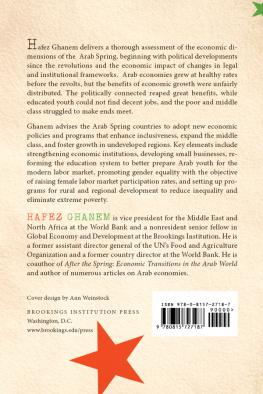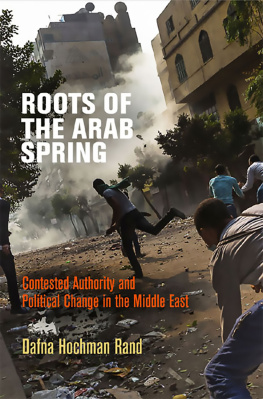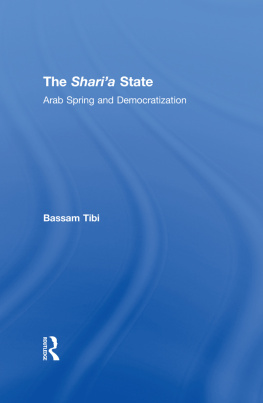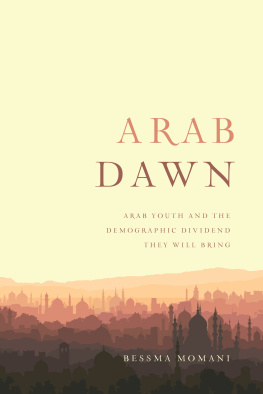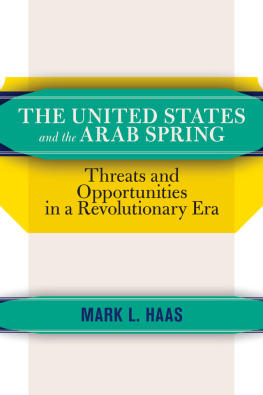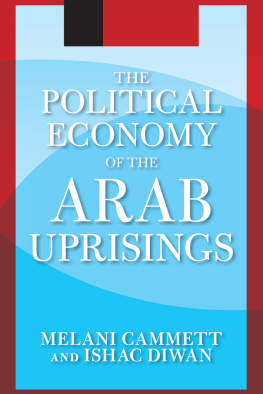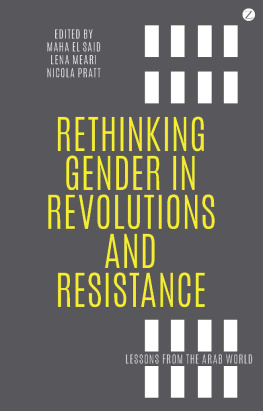Acknowledgments
This book represents the culmination of a three-year academic project undertaken by the Japan International Cooperation Agency (JICA) and the Brookings Institution, exploring how to achieve inclusive growth post-Arab spring, with the goal of contributing to development and stability in the region. The project aims to inform Arab policymakers, thought leaders, as well as bilateral and multilateral development partners and donors that are reviewing their programs and projects to reflect new realities in the region.
This work would not have been possible without the support of many people inside and outside of JICA and Brookings. Kemal Dervi and Homi Kharas provided overall support and guidance. I am particularly grateful to Homi Kharas for his comments on the various papers and on volume 1. Participants in various author workshops provided valuable advice, comments, and suggestions. These included Mayyada Abu Jaber, Perrihan Al-Rifai, Uri Dadush, Shanta Devarajan, Mourad Ezzine, Marc Schifbauer, Djavad Salehi-Isfahani, Ehab Abdou, Tamara Wittes, Bernard Funk, Shinichi Yamanaka, Akihiko Koenuma, Daniela Gressani, Inger Andersen, Heidi Crebo-Rediker, and Andrew Baukol.
Kristina Server provided invaluable management support. Aki Nemoto, Misaki Kimura, and Yamillett Fuentes provided excellent administrative and financial management support. The authors are also grateful to Neil OReilly, Christina Golubski, Michael Rettig, and the Brookings Press team led by Janet Walker for their help with editing.
This work was carried out while Hafez Ghanem was a senior fellow at the Brookings Institution, before rejoining the World Bank in March 2015. Hence, it does not necessarily reflect the views of the World Bank.
Brookings is grateful to JICA for its financial and intellectual support of this project. Brookings recognizes that the value it provides is in its absolute commitment to quality, independence, and impact. Activities supported by its donors reflect this commitment, and the analysis and recommendations contained in this volume are not determined or influenced by any donation. The chapters reflect the views of the authors and not the official position of any specific organization.

1
Introduction
This book has a simple message: It is high time for Arab governments and their international partners to focus on the economy and on building inclusive institutions. An almost exclusive focus on divisive political and identity questions since the Arab Spring started in 2010 has contributed to the current malaise. Peace, stability, and democracy in the Arab world will be achieved only if all Arab citizens, especially youth, are fully included in their countries economy and society and if they feel that their voices are heard in the various institutions of governance. A submessage of this book is that economic growth on its own is not enough. It must be accompanied by social justice.
The people want to bring down the regime was the slogan adopted by the young men and women who led the Arab Spring uprisings. The world held its breath as millions of Tunisians and Egyptians poured into Bourguiba Avenue in downtown Tunis and into Tahrir Square in Cairo, demanding an end to autocratic rule and the installation of democratic governance. And the regimes were brought down. Those were exciting days. The democracy fever spread to Bahrain, Yemen, Jordan, and Morocco; massive crowds of demonstrators took to the streets demanding bread, freedom, social justice, and human dignity. Western powers provided military support to an uprising in Libya that deposed a dictator who had come to power through a coup in 1969. And Syrians rose to rid themselves of an autocratic dynasty that had ruled them since 1971. Optimism was the order of the day. Arabs were finally waking up and joining the growing ranks of middle-income countrieslike those of Eastern Europe, Latin America, and Asiawho have transited from autocracy to democracy.
But can a country with no democratic tradition and with weak institutions become a well-functioning democracy and improve the lives of its citizens over night? The answer is obviously no. Democratic transitions take years, even decades, to succeed, and there are many twists and turns along the way. Moreover, they can be costly and require heavy human and economic sacrifices. Ask any Arab today if he or she feels that the region is better off than before the Arab Spring. What do you think the answer will be?
Nevertheless, the Arab Spring has brought about a significant, and probably irreversible, change in Arab societies and body politic. I recently asked a Cairo taxi driver what he thought of President el-Sissi. He was full of praise for the newly elected president. However, he was quick to add, you know we have overthrown two presidents before him (referring to Mohamed Morsi and Hosni Mubarak); so if this one does not deliver we can overthrow him, too. Holding leaders accountable is important for economic, political, and social development. The Arab world appears to be moving toward more open and inclusive governance. But how long will it take for this new spirit to provide results in terms of peace, stability, control of corruption, and economic well-being?
While excessive pessimism should be avoided, it is clear that the Arab transition has taken on a violent, and even scary, character. Thousands have been killed, millions of homes have been destroyed, and more than 15 million Arabs have become either refugees or internally displaced people. Relative to its size, the Arab region has the largest number of failed and fragile states. One fact tells it all. There are thousands of Yemeni refugees in Somalia (an African failed state) today. How long will the chaos in the Arab world last? What can be done to end violent extremism? Can Christians, Jews, Sunnis, Shias, and the myriad of other religions and sects that exist in the Middle East ever live peacefully together? Will anyone be able to stop the organization of the Islamic state, or Daesh, as it is known in Arabic? Will Iraq continue to exist as a nation state? Is the violence in Syria going to end in our lifetime? Will Lebanon ever go back to some semblance of normalcy, with a functioning parliament that meets regularly and is able to pass legislationand even to elect a president? Are the Arab absolute monarchies sustainable? Will Egypt and Tunisia remain relatively stable? Should Yemen and Libya be written off as unsalvageable failed states? Can the Arab-Israeli conflict be resolved? The answers to those questions are important for the world. Turmoil in the Arab region has global spill-over effects. Thousands of would-be illegal migrants perish every year as they try to cross the Mediterranean to get into Europe. Data on illegal immigration are difficult to obtain, but it seems reasonable to assume that not everybody dies or gets caught and that many thousands succeed in illegally entering Europe. Arabs are the first victims of violent extremism, but they are not the only victims. People in Europe, the United States, and even Japan have suffered from terrorism at the hands of Middle Eastern extremist groups.
This book is not about terrorism or violent extremism. Moreover, it is not about politics nor about democratic transitions. It is about economics. However, I do believe that achieving inclusive economic growth would contribute to peace, stability, and an end to violence in the Arab world. People who feel that their societies provide equal opportunities to all and that their voices are heard in policy discussions, who have good jobs, benefit from quality public services, and have hope for a better future for themselves and their children usually think twice before risking their and their families standard of living by joining violent or extremist organizations.

